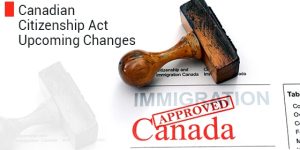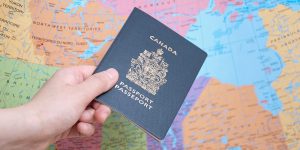Who are the “Lost Canadians”?
The Citizenship Act governs the legal status of Canadian citizenship and provides for when a person can be granted or can lose Canadian citizenship. Because of certain confusing provisions in the Citizenship Act, certain individuals who have thought of themselves as Canadian citizens or entitled to Canadian citizenship can find their Canadian status taken from them and consequently be forced to leave Canada. The term “Lost Canadians” was coined to describe such individuals who, despite having strong, undeniable connections to Canada, have lost their status or entitlement due to the obscure sections of the Act.
Amendments to the Citizenship Act
Since 1977, second-generation Canadians born abroad had an automatic right to citizenship, but those children had to meet certain conditions and apply to retain their citizenship by the time they turned 28 years of age. If they failed to complete this requirement, they automatically and unknowingly lost Canadian citizenship.
In 2009, Parliament introduced an amendment to the Citizenship Act that was supposed to fix this issue. Bill C-37 introduced a rule limiting citizenship by descent to the first generations born abroad. In order for people born in subsequent generation to obtain Canadian citizenship, they have to go through the normal immigration process (i.e., apply to become permanent residents in Canada through one of the various immigration programs), or to apply for a grant of citizenship where approval was not always guaranteed. However, Bill C-37 only covered individuals who had not turned 28 years of age yet; the amendment did not deal with anyone who had already lost citizenship, and many Canadians lost their status as a result.
In 2021, Parliament introduced another amendment to the Citizenship Act in relation to the issue of “Lost Canadians”. Bill S-245 moves to eliminate the requirement for individuals to reaffirm their citizenship by 28 years of age. This means that those affected would be considered Canadian citizens back to their dates of birth.
Gaps in New Proposed Legislation (Bill S-245)
Despite the slow progress made, Parliament still seems unable to fully resolve the issue of “Lost Canadians”. The new legislation does not address the other category of “Lost Canadians” created by Bill C-37 which denies the first generation born abroad to automatically pass on citizenship to their children if they are also born outside Canada. Additionally, the new legislation also eliminates the ability to gain citizenship by showing a “substantial connection” to Canada. The only recourse to gaining Canadian citizenship for this group of people would be to be sponsored by their parents to Canada as permanent resident, then apply for citizenship like any other immigrant.
The effects of these gaps in legislations and amendments targeting the issue of “Lost Canadians” are severe. In certain situations, the effects can render a person stateless. For instance, if a Canadian born abroad has a child in a country that does not provide citizenship at birth, then that child becomes a stateless individual with no protection or rights. This on its own is in contravention of the Convention on the Rights of the Child, of which Canada is a signatory.
Bill S-245 has already been passed by the Senate and passed first reading in the House of Commons. It is now set for its second reading at the House of Commons at a date to be determined.
How Can We Help?
At the Law Office of Matthew Jeffery, we have over 20 years of experience helping Canadian permanent residents obtain their Canadian citizenship. CONTACT US today to see whether we can assist you with your citizenship matters.






















